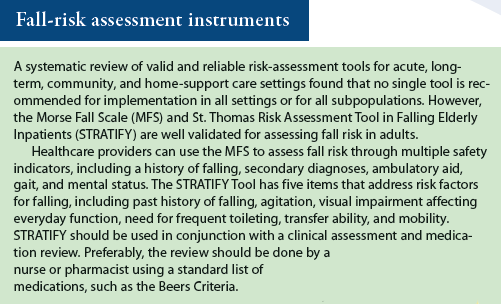The Of Dementia Fall Risk
The Of Dementia Fall Risk
Blog Article
Not known Details About Dementia Fall Risk
Table of ContentsThe Basic Principles Of Dementia Fall Risk Getting My Dementia Fall Risk To WorkGetting My Dementia Fall Risk To WorkHow Dementia Fall Risk can Save You Time, Stress, and Money.The smart Trick of Dementia Fall Risk That Nobody is Discussing
You may be worried due to the fact that you've had a fall prior to or since you have actually seen you're beginning to feel unsteady on your feet. You may have noticed adjustments to your health and wellness, or simply seem like you're reducing a little. Whatever the factor, it isn't unusual to end up being cautious and lose self-confidence, and this can quit you doing the points you used to do and make you really feel much more separated.If you have actually had an autumn or you've started to really feel unsteady, inform your physician also if you feel fine otherwise. Your physician can examine your equilibrium and the way you walk to see if improvements can be made. They may have the ability to refer you for a drops danger evaluation or to the drops avoidance solution.
This info can be gotten via interviews with the individual, their caretakers, and an evaluation of their medical documents. Begin by asking the specific regarding their background of drops, including the frequency and situations of any kind of recent drops. Dementia Fall Risk. Inquire concerning any type of mobility problems they might experience, such as unstable or difficulty walking
Conduct a comprehensive testimonial of the person's medicines, paying specific focus to those recognized to increase the risk of drops, such as sedatives or drugs that reduced blood stress. Determine if they are taking multiple medicines or if there have been current modifications in their medication program. Evaluate the individual's home environment for possible risks that can enhance the threat of drops, such as bad lighting, loosened carpets, or lack of grab bars in the washroom.
The Dementia Fall Risk Ideas
Guide the person via the autumn danger analysis form, clarifying each question and tape-recording their reactions precisely. Determine the overall danger rating based on the feedbacks provided in the evaluation kind.
This plan may consist of workout programs to enhance stamina and balance, medication modifications, home modifications, and referrals to various other professionals as required. Frequently check the person's progress and reassess their risk of falls as required. Change the care strategy based upon changes in their health condition or home atmosphere. Offer ongoing education and learning and support to advertise security and reduce the danger of falls in their everyday living activities.
Many research studies have actually shown that physical treatment can aid to decrease the danger of dropping in adults ages 65 and older. In a new research study (that looked at falls danger in females ages 80 and older), scientists calculated the economic effect of picking physical treatment to stop drops, and they located that doing so saves $2,144, including all the covert expenses of your time, pain, missed out on life occasions, and the dollars paid for services.
The Definitive Guide to Dementia Fall Risk
Analyzing your equilibrium, stamina, and walking capacity. A home security analysis. Based on the examination results, your physical therapist will create a plan that pop over here is customized to your details requirements.
Older adults that have trouble strolling and talking at the very same time are at a higher risk of falling. Dementia Fall Risk. To aid boost your safety throughout everyday useful content tasks, your physical therapist may make a training program that will challenge you to preserve standing and strolling while you do an additional task. Instances include strolling or standing while counting backward, having a conversation, or carrying a bag of grocery stores
Your physiotherapist additionally can identify which tasks you must stay clear of to stay secure. Community-based falls avoidance programs help people to: Decrease their worry of dropping. Set goals for boosting their physical task. Make their homes safer. Exercise much more to boost their strength and equilibrium. These programs typically are led by volunteer instructors.
Dementia Fall Risk Fundamentals Explained

Measles, or rubeola, is a highly contagious, intense viral infectious illness caused by the measles infection. Some people consider measles as simply a rash and high temperature that cleans up in a few days; nonetheless, measles can cause major wellness issues, especially in kids more youthful than 5-years-old. The ideal defense against measles is the measles, mumps, and rubella (MMR) injection.
Loss are an usual reason of injury amongst older grownups.
The Dementia Fall Risk Ideas

She has a case history of seizure condition and hypertension. She is receiving an IV mixture and taking Gabapentin and Lasix. She has no history of falls, her stride is constant, and she nullifies with no concerns. The previous nurse states that she calls for aid to the washroom when she needs to go.
Instances of common loss interventions/measures include: Making certain a client's crucial items are within reach. Past recognizing how to utilize the Johns Hopkins Loss Risk Evaluation Device, it's crucial that facilities incorporate its use right into an extra comprehensive autumn avoidance strategy.
Report this page